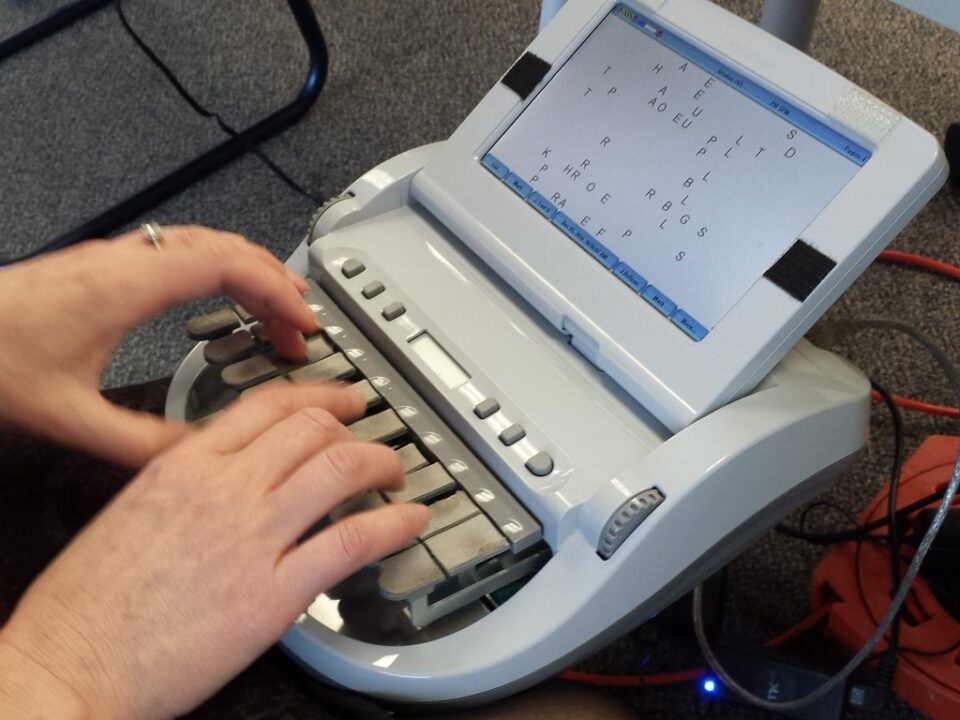Okay, be honest—if someone said “court reporting,” your brain probably went straight to boring courtroom dramas or someone furiously typing while a judge yells “Order!” But here’s the thing: court reporting is way more than that, and it’s actually a sleeper hit in the side hustle world. Most people don’t even realize it’s an option, let alone one that pays well, gives you flexibility, and lowkey puts you in the middle of some wild legal moments.
And no, you don’t need to be a lawyer or even like law shows to do this. Seriously.
This whole field is split into two main camps: stenography, which is kind of the OG, and digital reporting, which is the newer tech-driven version. They each have their own vibe, but both let you step into a role that matters—a lot. If you’re the type who loves working solo, likes learning random specialized skills, and wouldn’t mind earning solid cash from the comfort of your home (or even from a courtroom), this might just be the side hustle you didn’t know you needed.
What Is Court Reporting?
In plain terms, it’s about capturing everything that’s said during legal proceedings—trials, depositions, hearings, the whole nine yards—and turning that into an official record. That record can literally affect the outcome of someone’s life, which is kind of wild when you think about it.
Now, there are two ways people do this:
Stenography is the old-school but high-skill route. You use a machine called a stenotype, which looks like a tiny keyboard from the future. It lets you hit multiple keys at once to create phonetic shorthand in real-time. It’s like your fingers are typing in a secret code at lightning speed. Some pros can hit over 200 words per minute. Not even kidding.
Digital Reporting is more your speed if you’re not into learning a whole new typing language. You use audio recording tools to capture the courtroom action, and then either you or someone else transcribes it later using software. It’s a little more relaxed, but it still takes serious attention to detail. You’re still part of the legal process—you’re just letting the tech carry a bit more of the weight.
Both versions need focus, accuracy, and a good set of ears. And both can turn into full-on careers or stay as super flexible side hustles.
Is It Hard to Get Into?
Let’s break it down. If you’re going the stenography route, yeah—it takes time. You’re basically learning a new language (the shorthand code), and your fingers have to move fast. It usually takes two to four years of training, and not everyone makes it through. But the people who stick with it? They’re in high demand and pulling in serious money. Like, six figures isn’t rare. Some are even clocking in over $200K a year if they’re doing live realtime transcriptions in big courtrooms.
Now, if that sounds like a bit much and you want to dip your toe in first, digital reporting is a great way to start. You don’t need to buy a fancy machine, and training only takes a few months. You’ll learn courtroom procedure, how to set up your gear, and how to use transcription software. It’s beginner-friendly but still a legit way to break into the legal world. Just keep in mind, the pay’s usually lower—especially if you’re outsourcing the transcription part instead of doing it yourself.
Still, for a low-barrier hustle that lets you work remotely and do meaningful work, it’s worth looking at. And if you’re someone who’s already exploring side gigs with low start-up costs, you might like this guide on how to make $21K with side hustles. It’s packed with ideas that actually work.
Who’s This Good For?
Stenography is perfect for the folks who love challenges, can stay laser-focused, and enjoy picking up niche skills. If you’ve ever crushed it in a typing speed test or you’re the kind of person who gets weirdly excited about learning systems, this is your jam. You’ll be live-transcribing everything people say in real-time, so it’s not for the faint of heart. But there’s pride in it. You’re literally capturing history in the making.
Digital reporting is great if you’re more into tech and like working behind the scenes. You’ve got to have sharp ears, patience, and solid editing skills. It’s a bit less high-pressure, but still important. And it might give you more wiggle room if you want to build other side hustles at the same time. Like maybe you’re editing transcripts by day and flipping old books into cash by night.
No matter which path you choose, discretion is huge. You’re hearing sensitive stuff, and your job is to stay neutral and professional. It’s also mentally demanding. Long hearings, complicated cases, emotional testimonies—it’s a lot. But if you’re built for it, it can be incredibly rewarding.
Biggest Myths = Busted
Myth #1: It’s boring. Nope. You’re not just sitting in a corner typing. You’re in the action, soaking in all the drama, tension, legal arguments—it’s basically real-life storytelling in real-time.
Myth #2: It’s dying out. Also false. Yeah, tech is shaking things up, but there’s no replacing skilled humans when the stakes are high. AI transcription still struggles with accents, cross-talk, and legal jargon. Courtrooms want accuracy, and that means they still want people who can deliver it.
How to Start
First, do a little digging. Check out training programs—both online and local. See what the requirements are in your state. You’ll need certification for some roles, especially if you’re going into official court reporting.
Reach out to pros in the field. A lot of them are happy to share tips or even let you shadow them for a day. That’ll give you a real feel for whether this is your kind of hustle or not.
And if you’re juggling ideas right now, or trying to decide if this side hustle fits your lifestyle, this post on why your career is in your hands might be the pep talk you didn’t know you needed.
What’s It Actually Like in the Courtroom?
Court reporters have front-row seats to the legal world’s most intense moments. One day you might be working on a criminal case with high tension, and the next it could be a super complex business dispute. You need to stay focused, stay calm, and stay on top of every single word.
You’ll be working with judges, attorneys, witnesses—sometimes even jurors. That means you’ll need people skills on top of the technical stuff. And yep, you’ll absolutely have wild stories (even if you can’t legally tell them all).
So, Is Court Reporting Your Next Hustle?
If you’re looking for something different from the usual online side gigs, court reporting might be the breath of fresh air you didn’t expect. It’s mentally challenging, financially solid, and it makes you feel like you’re actually contributing to something meaningful.
It’s also flexible. You can go all-in and turn it into a full-blown career or keep it in your back pocket as a high-skill side hustle while you build other income streams. Like maybe you’re reporting court proceedings by day and blogging as a side hustle on weekends.
Either way, it’s worth looking into. This isn’t some get-rich-quick scheme—it’s a legit profession that’s been around for ages and isn’t going anywhere anytime soon.
Try it. You might end up loving it more than you expected.







